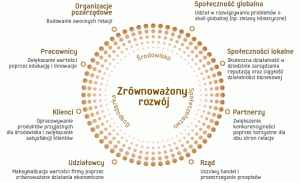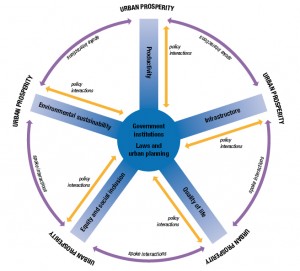Today we understand how important it is to implement sustainable development ideas systematically all over the world – it is the only chance for present generations not to ruin the Earth for those to come. The EU for years has put great emphasis on actions that are in line with the sustainability concept. One of key documents that guarantees implementation of these ideas is the Europe 2020 Strategy.
The European Union spares no effort to make sustainable development not an empty phrase by implementing the idea in various areas. In 2010 Members of the European Parliament ran a debate on modified Lisbon Strategy 2000 amended in 2005.
On 3 March 2010 the EC adopted the Communication “Europe 2020: A strategy for smart, sustainable and inclusive growth”. It stated that facing globalization challenges is possible only under strict cooperation of all Member States. Only collectively can European countries face the crisis, demographic issues (aging of societies – a growing burden of Polish politicians as well) and responsible natural resource use. Those objectives can be reached by three priorities:
– Smart growth: developing an economy based on knowledge and innovation.
– Sustainable growth: promoting a more resource efficient, greener and more competitive
economy.
– Inclusive growth: fostering a high-employment economy delivering social and territorial
cohesion.
The Commission proposes the following 5 headline targets for the EU in order to monitor the progress:
– 75 % of the population should be employed
– Better conditions for Research & Development: 3% of the EU’s GDP should be invested in R&D
– Reduce greenhouse gas emissions by at least 20% compared to 1990 levels; increase the share of renewable energy sources in our final energy consumption to 20%; and a 20% increase in energy efficiency;
– A target on educational attainment which tackles the problem of early school leavers whilst increasing the share of the population aged 30-34 having completed tertiary education
– Promoting social inclusion – the number of Europeans living below the national poverty lines should be reduced lifting over 20 million people out of poverty.
Europe 2020 Strategy shall be implemented by national reform programs drawn up by each Member
State. The Commission is also putting forward flagship initiatives on the EU, state, regional and local levels:
“Innovation Union” to improve framework conditions and access to finance for research
and innovation so as to ensure that innovative ideas can be turned into products and
services that create growth and jobs and eliminate social and economic problems pointed out in Europe 2020 Strategy.
“Youth on the move” to ensure efficient investment in education and training systems at all levels and to step up the modernisation agenda of higher education by benchmarking university performance and educational outcomes in a global context.
“A Digital Agenda for Europe” to enhance single digital market (access to high-speed internet) for economic and social benefits.
“Resource efficient Europe” to support the shift towards a low carbon economy, increase the use of renewable energy sources, eliminate interdependence between economic growth and natural environment degradation.
“An industrial policy for the globalisation era” to improve the business environment, especially for SMEs, and to support the development of a strong and sustainable industrial base able to compete globally.
“An agenda for new skills and jobs” to enhance labor mobility and thus to increase employment; to modernize job markets by providing better labor conditions.
“European platform against poverty” to ensure economic, social and territorial cohesion such that the benefits of growth and jobs are widely shared and people experiencing poverty and social
exclusion are enabled to take an active part in society.
Stronger economic governance will be required to deliver the results. The European Commission will supervise and manage Europe 2020 by Integrated Guidelines and National Recommendations.
In April 2011 EU Member States submitted their National Reform Programs for Europe 2020 implementation. Such a declaration form should provide steady grounds for the economic growth.
Sources:
http://www.mg.gov.pl/files/upload/8418/Strategia%20Europa%202020.pdf
http://ec.europa.eu/europe2020/index_en.htm
http://epp.eurostat.ec.europa.eu/portal/page/portal/europe_2020_indicators/headline_indicators
http://www.mg.gov.pl/files/upload/8418/Unia%20innowacji.pdf
http://ec.europa.eu/social/main.jsp?catId=950&langId=pl
http://www.mg.gov.pl/files/upload/8418/Agenda%20cyfrowa.pdf
http://www.mg.gov.pl/files/upload/8418/resource-efficient_europe_pl.pdf
http://www.mg.gov.pl/files/upload/8418/Polityka%20przemyslowa.pdf
http://www.mg.gov.pl/files/upload/8418/Umiejetnosci.pdf
http://www.mg.gov.pl/files/upload/8418/Ubostwo.pdf
http://WWW. Wikipedia.org






